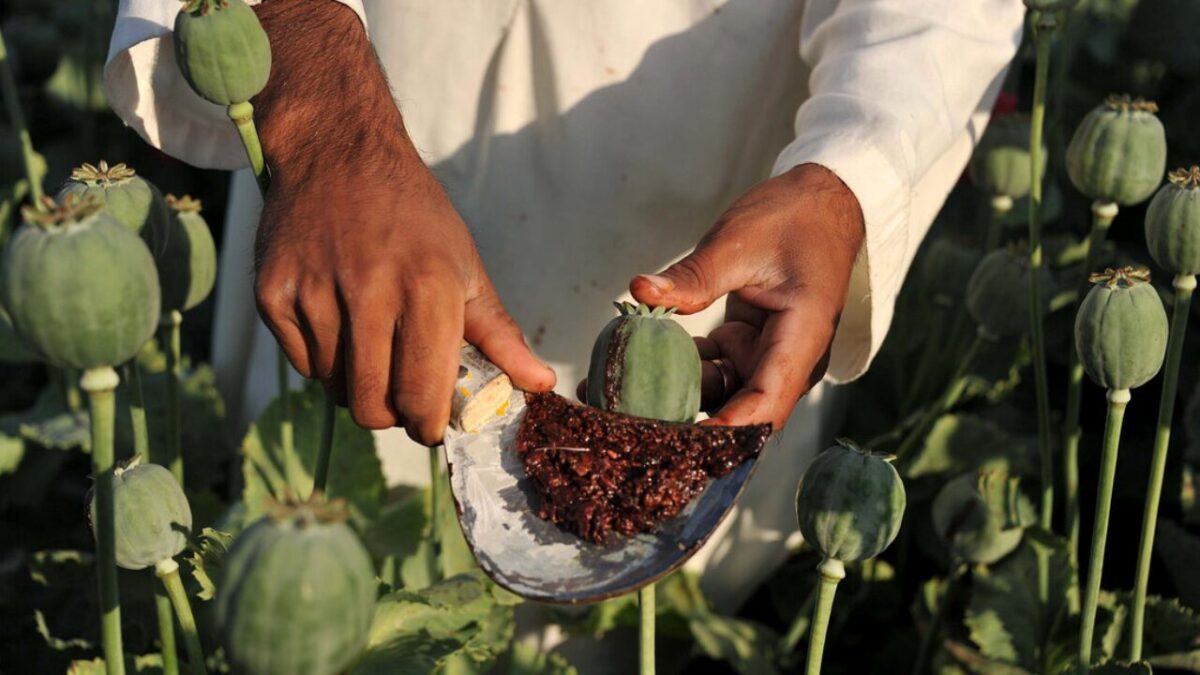More than two years after the Taliban’s 2022 ban on narcotics, poppy cultivation levels in Afghanistan remain historically low, but opium continues to be grown, cultivated, and sold in some areas, according to a new report from the U.S. Special Inspector General for Afghanistan Reconstruction (SIGAR).
Citing the U.S. State Department, the report noted that the Taliban has faced challenges in enforcing its nationwide prohibition on narcotics.
David Mansfield, a counternarcotics expert, reported that Afghanistan’s opium trade remains active due to large reserves of stored opium and a decline in opiate prices.
“The decrease in opium prices highlights the growing market uncertainty around the drug trade in Afghanistan,” Mansfield said, according to the report. “These shifting dynamics are not only a result of the Taliban ban but also of broader geopolitics and its impact on cross-border trade with Pakistan and Iran.”
SIGAR also noted that while Afghanistan has seen a reduction in opium production, the country continues to produce far more methamphetamine than what is seized by authorities downstream.
Taliban have continued to consolidate and regulate Afghanistan’s informal, nonbanking financial sector, which serves approximately 90 percent of the population, SIGAR reported. Taliban have enforced existing financial regulations while increasing requirements for registration, transactions, and reporting.
However, the report stated that it remains unclear how these regulatory efforts are influencing other countries’ willingness to engage in financial transactions with Afghanistan.
Afghanistan’s central bank, Da Afghanistan Bank (DAB), has maintained licensing and capital requirements for money service providers (MSPs) and has supported the detention of unlicensed operators, according to the report.
Concerns over banking system
SIGAR also reported that the Taliban-led central bank did not request technical assistance from the U.S. State Department this quarter to implement international best practices for central bank governance.
The report cited State Department sources indicating a noticeable number of resignations among DAB employees in recent months.
Additionally, SIGAR noted that DAB has held internal Taliban meetings focused on anti-money laundering and countering the financing of terrorism. As part of these efforts, the bank renewed a memorandum of understanding with the Taliban’s Ministry of Interior to strengthen coordination on financial crimes, including money laundering.





